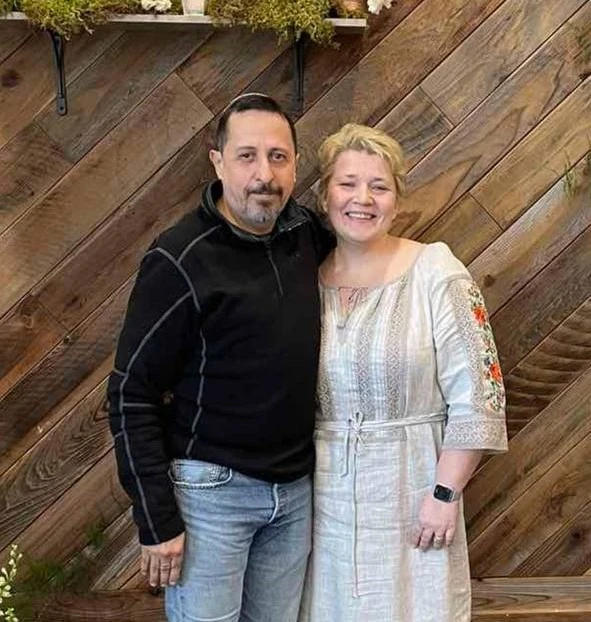Intercultural Marriage: A Mexican and a Ukrainian in Yucatan
9 August 2024
“In our case, we had no intercultural conflicts, only character conflicts” – the Cervantes missionary couple.
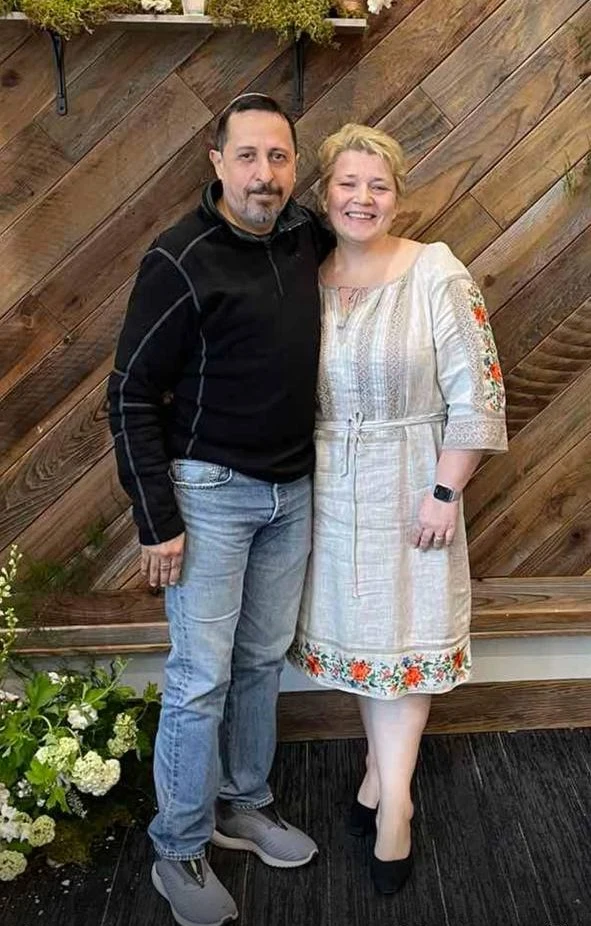
Luis and Valentyna, missionaries in Mexico for 20 years, live and serve on the Yucatan Peninsula, where the descendants of the Mayan tribe still live.
Valentyna previously spent ten years in full-time ministry in Ukraine, and the last four years teaching ancient Greek and theology at the Lviv Theological Seminary.
Together they founded the La Casa de Santidad mission, where Luis is senior pastor and teacher of the church of the same name.
In this interview, the Cervantes talk about the culture of Mexicans, introduce the concept of “Mexican Catholicism,” and share the difficulties of sharing the Gospel with Mexicans and living in a cross-cultural marriage.
How did you end up in Mexico? Tell us the story of how you met.
Valentyna: I am originally from Ukraine, from the Zhytomyr region, but I lived in Lviv for the last four years before I went to Mexico.
In 1999, I returned from Canada, where I had studied for a bachelor’s degree in theology, and began teaching in Ukraine.
I later earned a Master’s degree in Theology from the University of Wales in the United Kingdom.
In 2003, a week before my 30th birthday, I met Luis in the online chat room Theological Discussions. My family later admitted that they had prayed that the Lord would give me a husband on my birthday, because by Ukrainian standards I was already an “old maid.
In our churches, they know how to create pressure and make you feel inferior, almost handicapped, if you are still unmarried at that age. To this day, girls write to me asking for prayer, saying that they are already 24 (!) years old and still unmarried and worried about their fate. I hope that with the change of generations, this attitude will also change in the church.
Luis and I talked online for a long time, fasted and prayed, sought the Lord, and acquainted our pastors.
Later, Luis flew to Ukraine and we got married five days later.
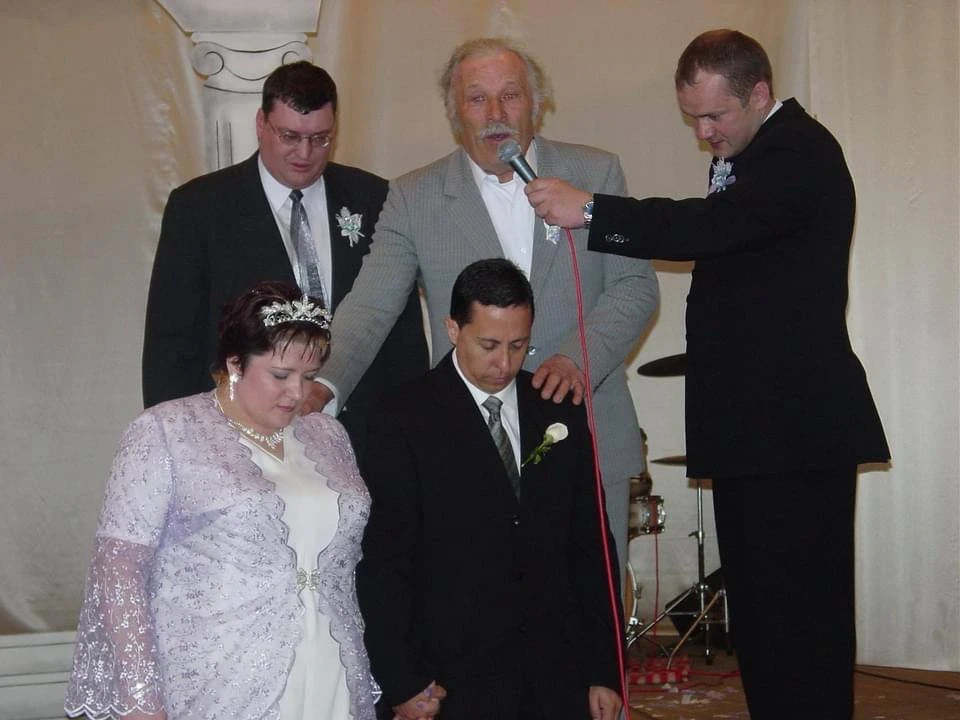
After we were married, we continued to seek the Lord and ask Him where to build our lives. And through our inner testimony and circumstances, we realized that we needed to start a ministry together in Mexico.
How did you stay single until you were 30 and didn’t get married? Did you have a revelation from God? Please share.
I came to God from the world when I was 20 years old. At that time, it seemed to me that I had already lived almost half of my life because I was living a very sinful lifestyle.
At the age of 20, I graduated from Zhytomyr Pedagogical University, and I was faced with the question: what am I going to do next? Looking at myself, I did not want to continue living like this, because I knew that I was destroying my life. At that time, my mother was already a Christian and I knew very well the evidence of the Gospel in our family: healing, God’s grace.
My mother told me about a Bible college in Korosten (Zhytomyr region). I knew that if I repented, I would definitely serve God. That’s how we were raised: if you start something, do it to the fullest or don’t start at all. By October 1994, I was already studying in this Bible college.
I remember that in August of that year, I finished my last cigarette in my room and asked God to make it really the last one. I went down on my knees and prayed my personal prayer of repentance.
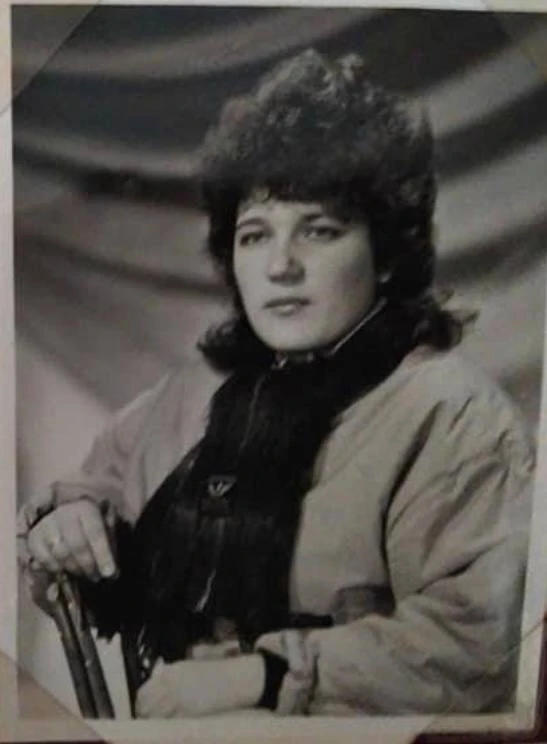
At the same time, I asked the Lord to close my heart from falling in love, so that I would not live in anticipation of a man until I met the one I would be united with.
I can’t say that in the years before I met Luis, I didn’t have any crushes or interests. Everything was like a normal person, but each time I knew it wasn’t him and I resisted all the infatuations.
I remember when I was 29 years old, I was teaching at a university in Lviv. And a brother in Christ, observing that many girls despair because they cannot get married for a long time, go out into the world and get pregnant to have a child, or marry an unbeliever, thinking that they will bring him to the Church, asked me how I manage to remain joyful and active, being without a partner.
And I answered that in order to do so, one must desire God much more than a man, because he will not fill a woman’s heart, the emptiness in her soul, or fulfill her vocation. Since then I have always given this advice to the girls.
Luis, how did you feel that you were “her” when you met Valentyna?
The thing is that we didn’t know each other personally. So in my case it was not as if I saw her and recognized her. We met when I was preparing to become a pastor.
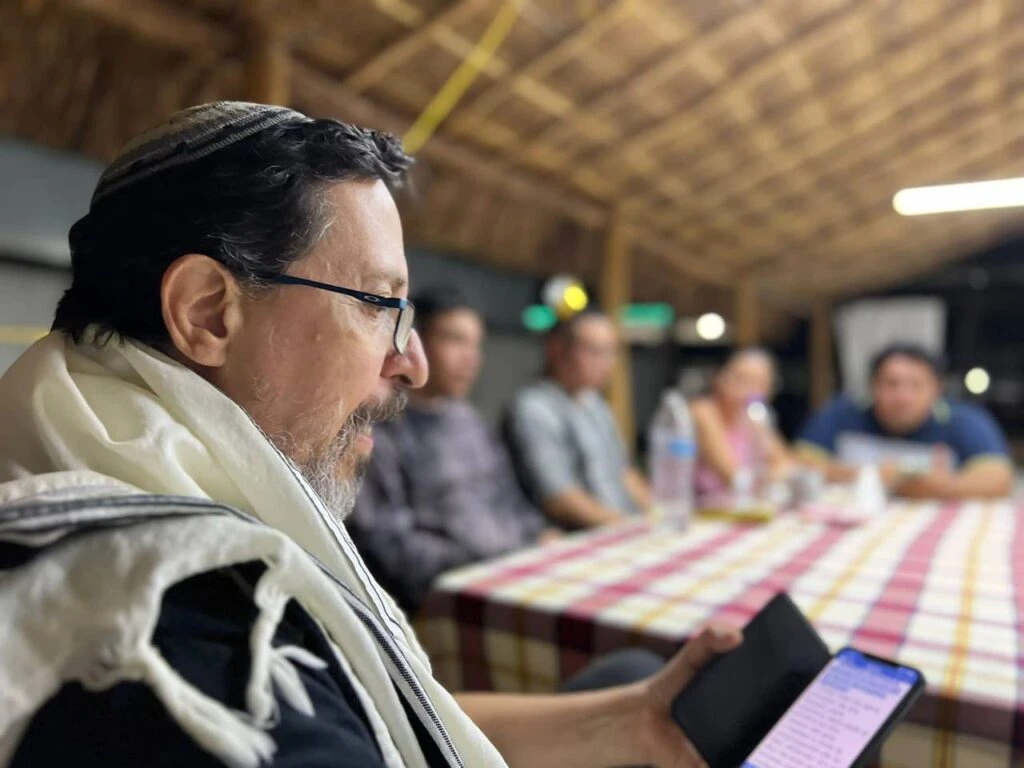
My pastor wisely recommended that I get married while I was preparing to be a pastor in order to avoid many temptations and trials. But he talked about it when he already had a candidate for me.
I joined online chat rooms for theological discussions to practice my English and study the Word. I thought that since my pastor was American, God wanted me to know English. But God had a very different plan.
As Valentyna and I met on this Bible chat and began to communicate in person, I realized that God had answered my prayer for a wife. She was a teacher, had a biblical education, and I realized that God had orchestrated everything so that I could meet her.
How much of a role does the difference in culture play in a relationship?
Luis: In our case, we had no cross-cultural conflicts, only character conflicts.
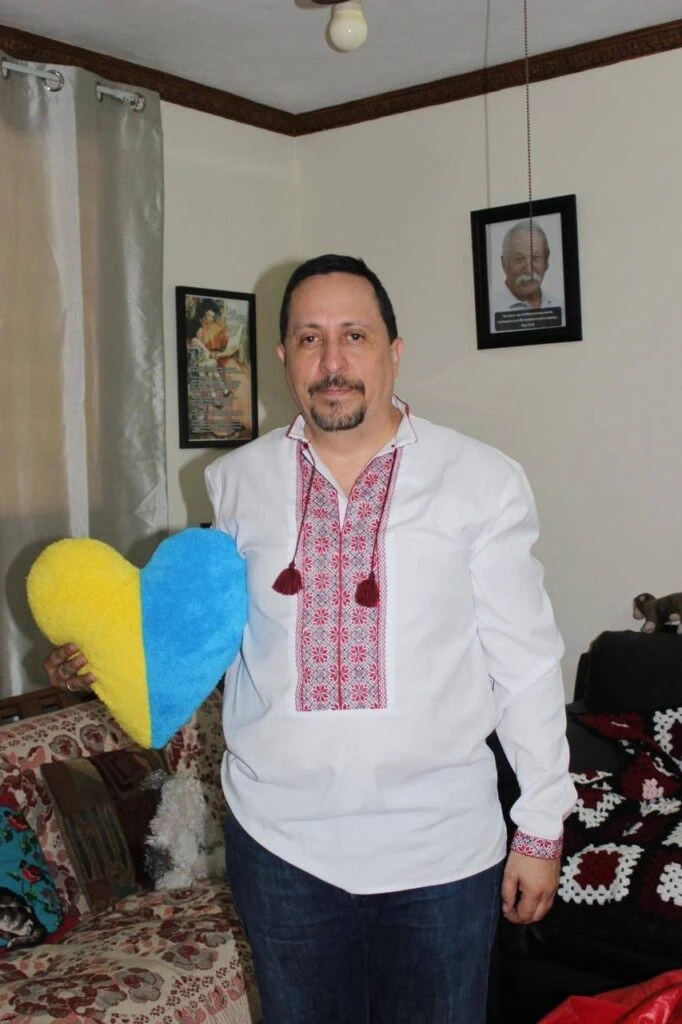
When I flew to Ukraine for the first time five days before my wedding, my knowledge of Ukraine was very superficial, even though I didn’t speak the language and had never been to this country before, but from the moment I stepped on Ukrainian soil, I fell in love with Ukraine.
I was very impressed with everything about Ukraine: the language, the culture, and the traditions. Of course, as believers, we do not follow all the traditions, but I fell in love with the traditions that do not contradict the Word.
How was your adaptation in Mexico, Valentyna?
It was difficult. Mexico, Latin America, is a completely different world that I did not know at all. Although I had been to several countries before Mexico: I studied in Canada and Great Britain, so I can’t say that I came from Ukraine without having seen anything.
Yes, I was born and raised in the countryside, went to school there, and then lived in big cities, so I didn’t have a very narrow cultural experience.
But in Mexico I had an absolute culture shock. First of all, Mexico is a symbiosis of cultures. There are still over 60 languages and dialects in Mexico.
The local culture is made up of many Indian tribes. Colonization “raked” them all into one country and called it Mexico. Each state is very different, it seems that each of them is a different country.
Second, the tropical climate – humidity up to one hundred percent and heat. Also, the locals, who are not in a hurry, will be an hour or two or even three late. For example, if you have an appointment at 9 a.m., the best they can do at that time is take a shower.
On top of that, I did not know or understand the language at all. The first time I heard it was when Luis called his parents from the Ukraine. After we got married, we spoke English for 1.5 years.
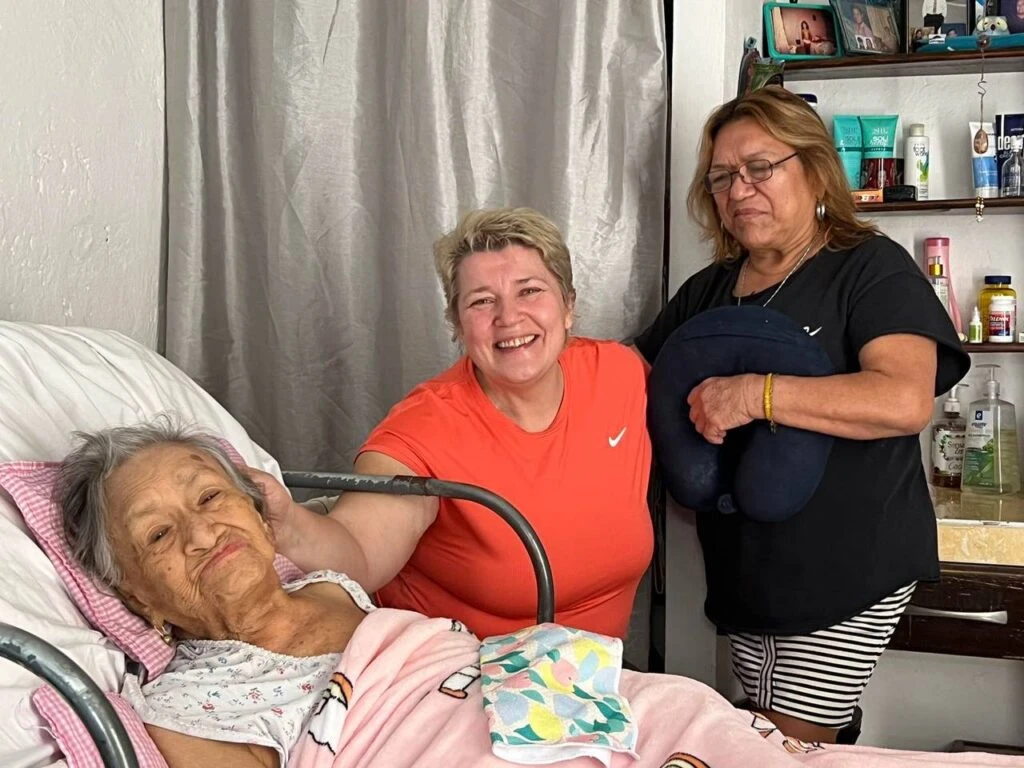
Because the Lord gave me such grace – I love people very much and it’s easy for me to build relationships – I started to communicate with everyone as best I could. At first I didn’t like the Spanish language. But from the moment a Bible study group started in our home and grew into a church, I mastered the language in 1.5 years and was already speaking, teaching and preaching in Spanish.
Difficulties in our marriage arose from the fact that Luis and I had different upbringings from childhood. I was taught that we could do anything, and if we didn’t know how, we would learn. Luis was raised differently – specialists should do their job. And when I want something done right away, I meet his approach: we have to plan it.
How do people propose in Mexico?
Luis: There is no tradition. It’s up to the man how he wants to do it. For example, many invite singers to serenade their beloved.
After the proposal, the girl informs her family and they meet with the groom’s family. They decide on a wedding ceremony in the church they belong to.
What is family like in Mexico?
Luis: Family is very important to Mexicans. Our culture insists on the unity of the family. Everything revolves around the family. When the weekend comes, the whole family is always together. All birthdays are celebrated with the whole family. For special events (graduation, birth of a child), the whole family must be present. When someone is in the hospital, almost the whole family is there every day.
Whether families have many children or not depends on the area – somewhere 6-7 children is the norm, and somewhere up to three – this is the situation in developed industrial cities.
How are children raised in Mexican culture?
Luis: The values of children here, as elsewhere, depend on the values and beliefs of their parents.
The foundation of education is school. The government insists that children receive an education. There are many settlements in Mexico where parents cannot send their children to school due to lack of infrastructure and technology. These are regions far from the cities.
Also, due to economic difficulties, young people are forced to leave school to find work.
Valentyna: Mexico is a country with many Indian cultures. Therefore, Catholicism here is “Indian”, it is not centered on Christ, it is not a Christian religion. They say they are Catholics, but we are called Christians. The local people do not consider themselves Christians.
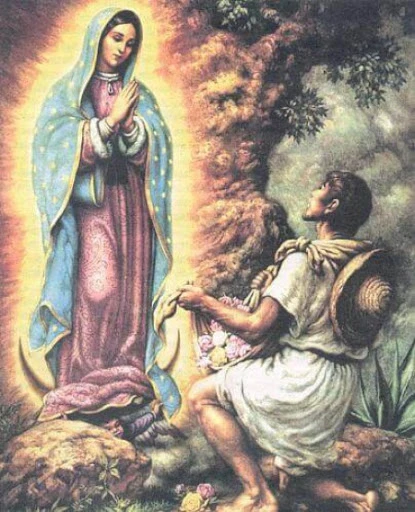
The center of Mexican Catholicism is a virgin they call Virgin of Guadalupe. The story about her was invented by the colonizers to subjugate Indian beliefs to Catholicism. The story goes that there was a man named Diego who had a vision of a dark-skinned virgin, a woman of Indian descent.
This same so-called Mexican Catholicism is mixed with the remnants of Indian cultures that focus on the cult of death. There are various forms of death worship here. The cult is called “La Santa Muerte” or “Holy Death”.
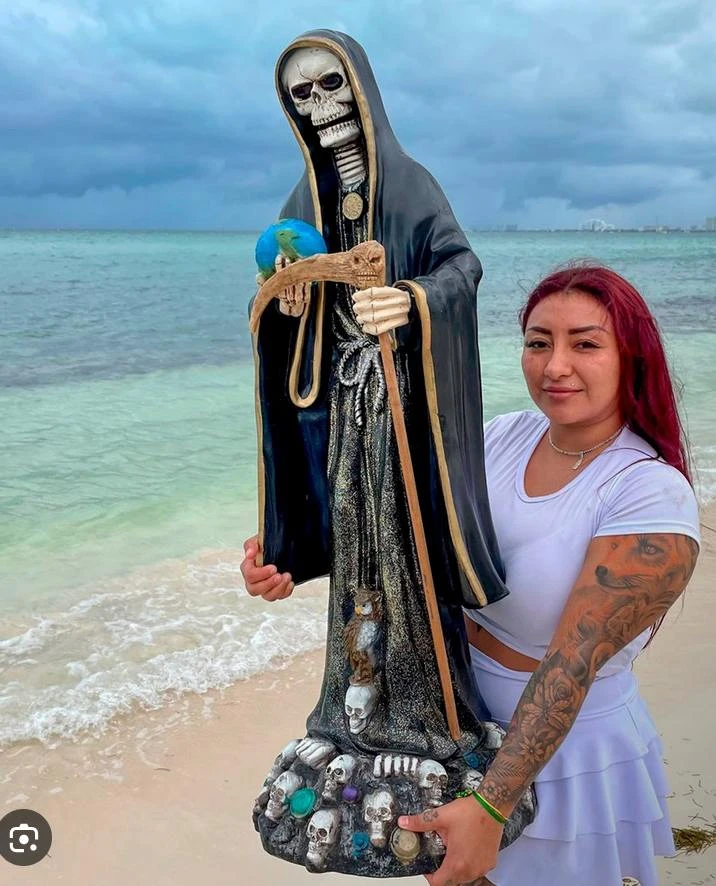
It is an open occultism, when its symbol is Death with a scythe, even worn as a pendant around the neck. People “bargain” with this spirit. What they ask for comes true, but in return, many tragedies come to the families.
Another way in which the culture of death manifests itself is in the celebration of the Day of the Dead in October. People with spiritual insight can even smell sulfur in the air from the many rituals that begin with Halloween and continue through the Day of the Dead. In every house there is an altar of death – a katrina – a skeleton dressed in certain clothes.
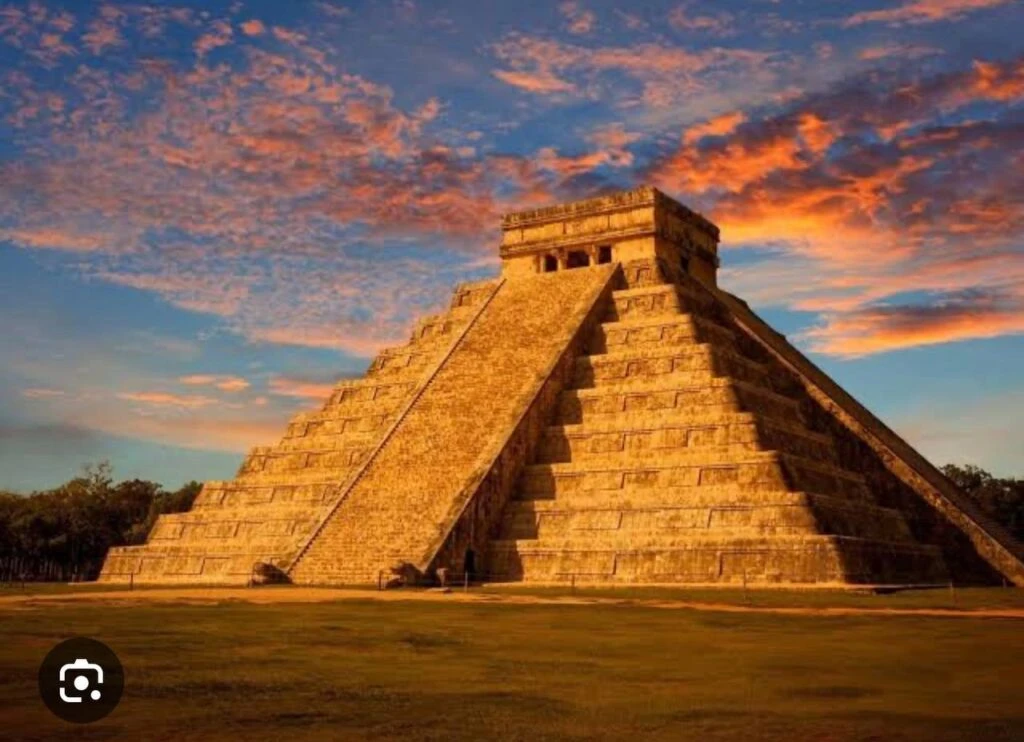
In addition, wherever you go on the island of Yucatan, where the Mayan tribes lived, there are their pyramids and altars. They believe in the underworld and occultism has ancient roots here, it is deep and has terrible consequences.
When something is built here, it is usually believed that if sacrifices are not made to the gnomes of the earth, called “aluxes”, the construction will fall into ruin.
Mexico is a country of drug cartels that have great influence and are involved in drug trafficking and sex trafficking.
Under these conditions, how do Mexicans accept Christ? How difficult is it to share the Gospel?
Luis: It is difficult to preach because Mexicans believe that they are Catholics who know Christ as the Son of God. In Mexico there is a constant struggle between evangelicals and Catholics.
Catholics have begun to reclaim the name “Christians,” while evangelicals are called “separated brothers. It is very difficult to change the mindset of Catholics because the foundation of their faith is Guadalupe and that cannot be changed. It takes a miracle of God.
When you come to them with the Gospel and say that there is only one God to be worshipped, that Christ is the only mediator between God and man, they do not want to listen and they consider you an enemy.
Valentyna: Because Mexicans are a very emotional nation, they build churches, even evangelical churches, on emotions: to come and jump, but there is no teaching as such.
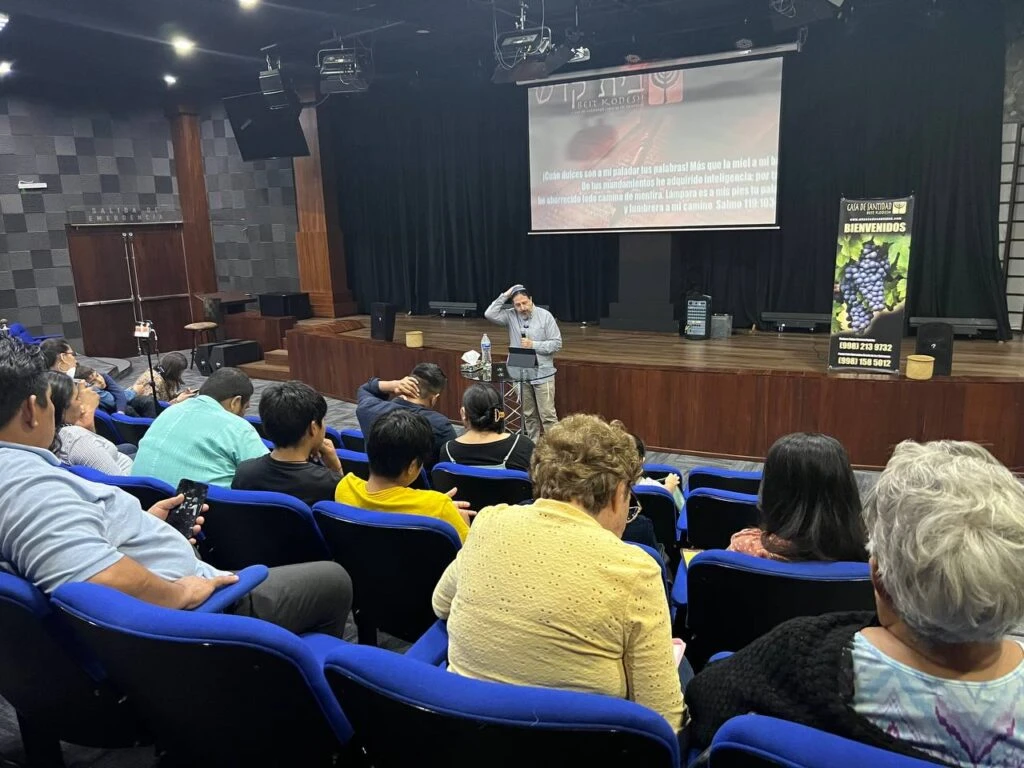
As our ministry is God-centered and biblical, they think we are too serious and religious for them because we focus on the Word of God.
I once asked our young people in the church why our church is not growing so fast. They replied that our church focuses on depth, not breadth, and Mexicans don’t like to think, they need everything to be said and decided for them. These are the consequences of colonization and the worship of the idols of nature, which makes the mind dull.
How does joint ministry affect family relationships?
Valentyna: The positive side of joint ministry is that we share everything. And the negative side is that we do everything together and it is difficult for us to separate from the ministry and rest as normal people. We have caught ourselves more than once when we seem to be resting but keep talking about the ministry.
Luis is a quiet, shy person, it is not easy for him to start a conversation with someone. He needs to get to know a person well to be able to communicate with them in a relaxed way.
He is a pastor by vocation and I am a teacher.
I never wanted to be a pastor’s wife, but I wanted to have a wealthy husband who would support my ministry.
When we started the church, I decided to help my husband, believing that he was not capable of being a pastor, and actually took his place. I am good at building relationships and quickly assigned responsibilities to everyone in the church.
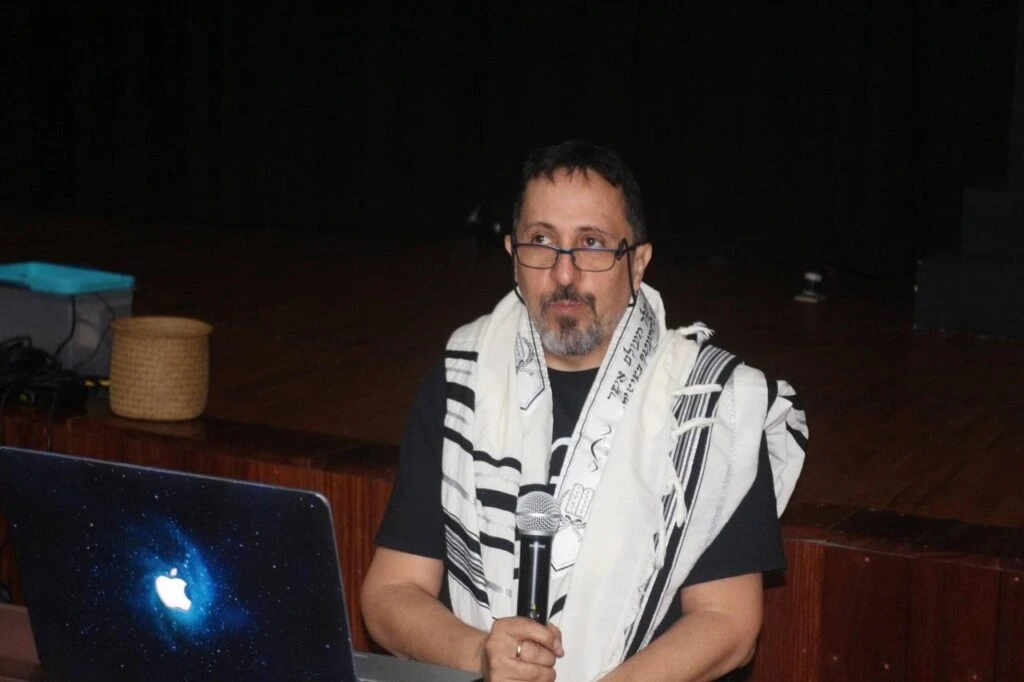
One day we came home and Luis said he wanted to talk to me. He asked me a question: “Has God called you to be a pastor?” I answered that I was helping him. But he replied that not only was I not helping him, but I was preventing him from developing his calling. He was ready to leave this church to me and open another church without me.
But God changed me when I began to humble myself before Him.
This was our main conflict about ministry and family, because how can two people go together if they are not in agreement?
Tell us about your ministry.
Valentyna: Since we both have the gift of teaching, our church is a teaching church. And teaching is our main area of ministry, both in Mexico and internationally, because we travel a lot to other countries.
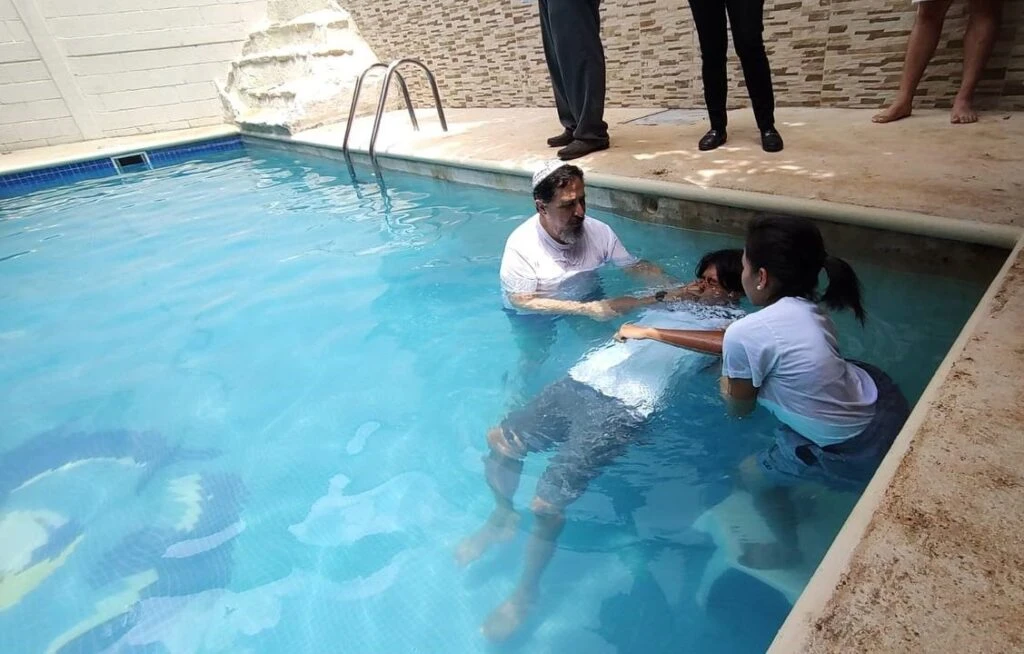
We are building a church based on the principle of discipleship and taking care of each one personally – the principle of one soul.
Mexico is an evangelized country, some people have accepted Christ four times. But are there real changes? That is why we have this understanding that we need to teach those who are already “evangelized”.
On the one hand, we lack a good evangelist in the church, but we still understand that once a person has come to the church, we need to teach them how to be saved and how to be saved.
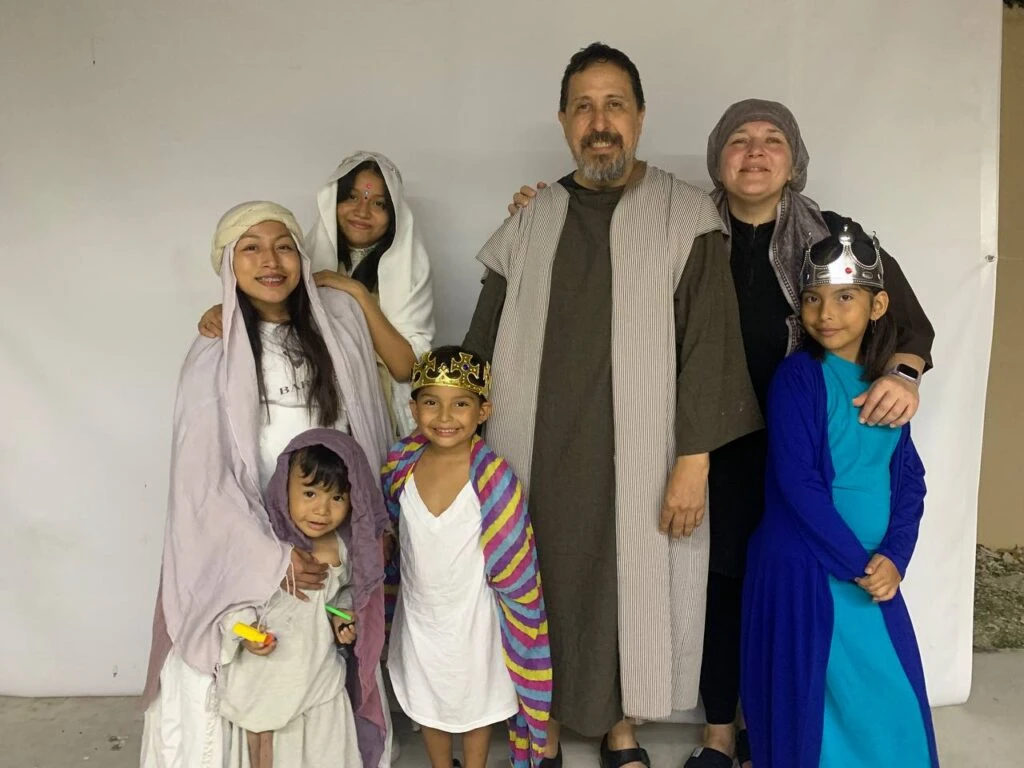
We study the Bible with the people in the church all the time. We have sermons on Sundays where I preach in cycles of topics. Luis analyzes the Word of God with the people on Wednesdays, and on Fridays we celebrate the Sabbath and also study the Scriptures. We also have one-on-one conversations with people, counseling them and working on their inner healing. Many people in Mexico experience sexual abuse in their families because of the pagan culture. We also minister to all other categories of people.
What do the locals eat?
Valentyna: Mexican food is an art. It is the second most popular cuisine in the world after Chinese. It is very delicious and varied. We have widows in our church who love to serve food. On our birthdays, they always prepare our favorite dishes for Luis and me.
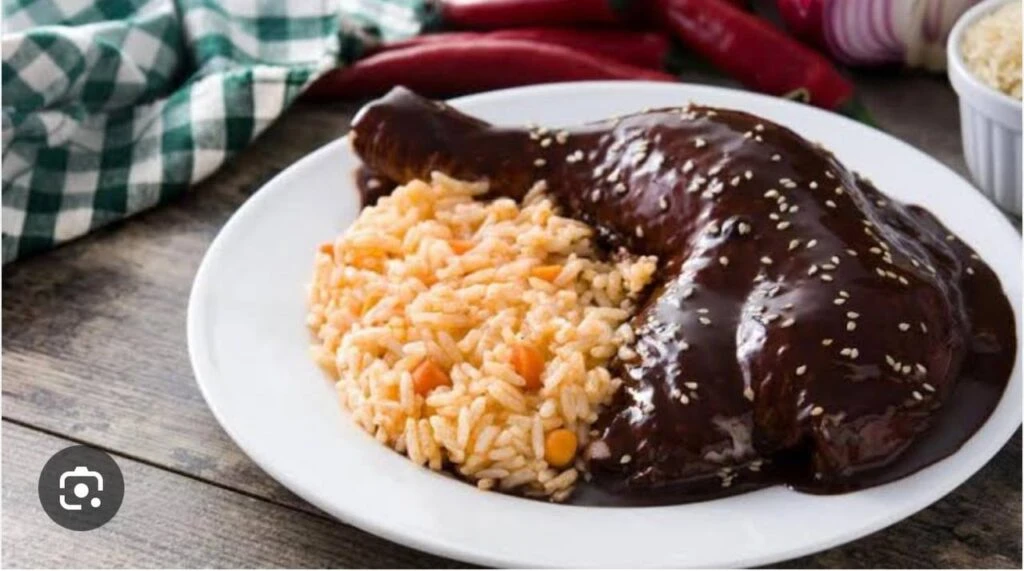
The “Mole”, for example, is a chocolate sauce that can have different levels of spiciness. It is made with 40 ingredients. Chicken is then cooked in this sauce.
I had a case involving mole, my first unsuccessful missionary experience. In Bible school we were taught not to refuse local food. I was invited to a party and there was chicken in the mole, and there was so much of it that I ate too much and got poisoned because the food was unusual for my stomach.
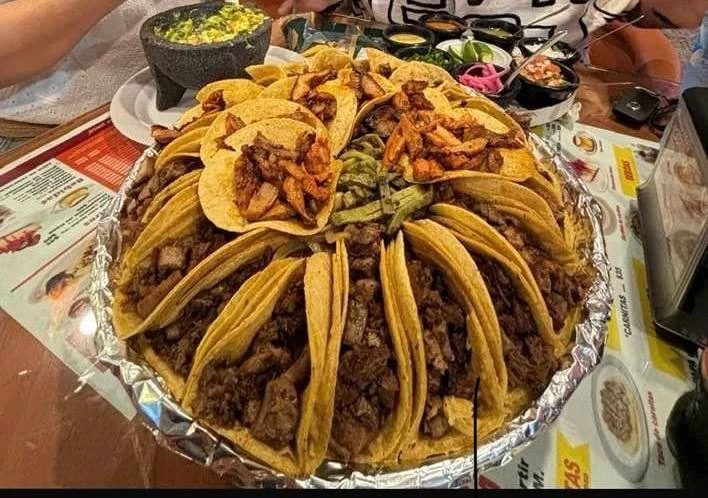
Another popular dish is tacos, a corn tortilla (pancake) that can be filled with any kind of topping.
What advice would you give to those entering into an intercultural marriage?
Luis: Definitely, faith should be at the center of it, because if a person does not have a personal, stable relationship with God, then any marriage is going to be difficult, not just an international one.
You have to be prepared for a new experience, for the fact that there will be a lot of incomprehensible things. The spouse has not only a different culture, language, and character, but also different experiences in which they were formed. It is important to be flexible. Be ready to live with a person who may be completely different from you.
Valentyna: For me, the principle of Amos 3:3 is important in relationships: “How can two go without agreement?
Luis and I come not only from different cultures, but also from different denominations. I am a Pentecostal and he is a Baptist. I had a question: As a Pentecostal theologian, can I marry a Baptist?
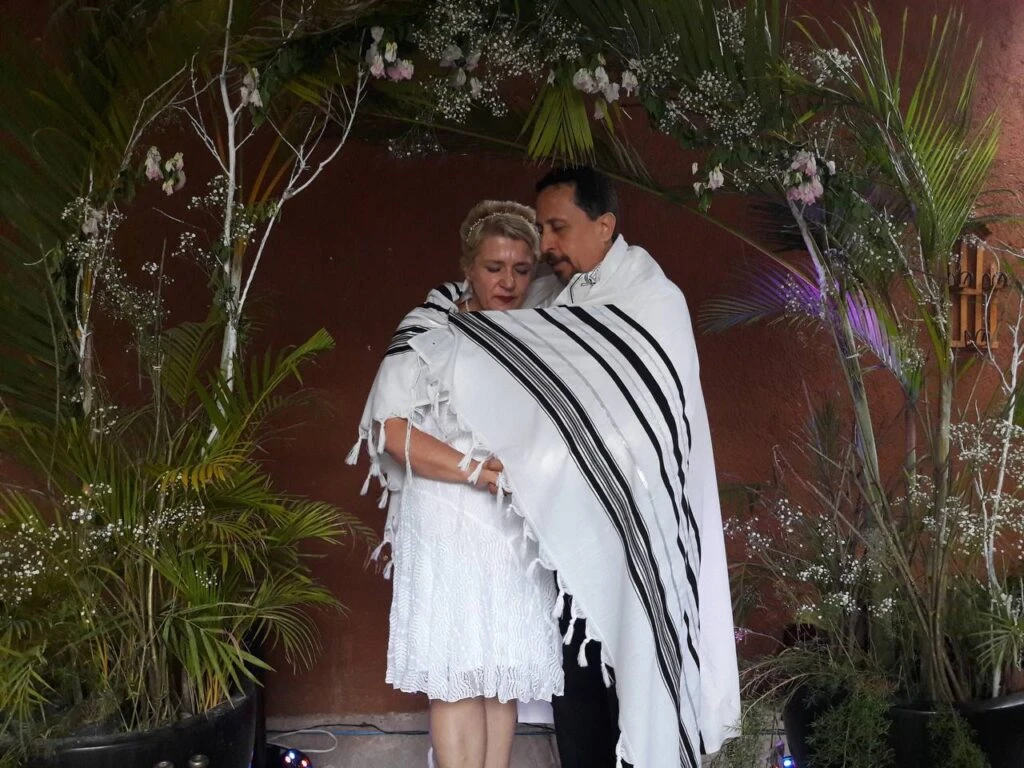
So we came to an agreement that was conducive to our denominational differences. We agreed on how to behave when those differences manifested themselves. We agreed that neither of us would try to convince the other of his or her denomination.
For the first year of our marriage, we simply read the Bible together, without discussion, without debate, just letting God have His way. Since we are both masters in theology, we decided to put aside all our preconceptions and let the Word of God speak to us.
It worked for us to build up. Therefore, in an interethnic marriage, it is necessary to agree on how the couple will resolve conflicts.
The interview was conducted by Hanna Zelenova, CITA Press Center.
